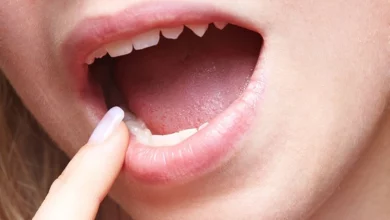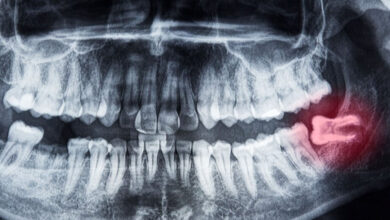What Makes You Loopy After Wisdom Teeth Removal? Read this!

Table of Contents
- 1 What Makes You Loopy After Wisdom Teeth Removal?
- 2 Understanding Wisdom Teeth Removal:
- 3 Anesthesia and Sedation are What Makes You Loopy After Wisdom Teeth Removal:
- 4 How Sedation Alters Your Brain Chemistry To Cause Changes In Behavior & Consciousness
- 5 Effects of Anesthesia and Sedation:
- 6 How Long Does Anesthesia Last After Wisdom Teeth Removal Surgery?
- 7 Tips To Control What You Say After Wisdom Teeth Removal
- 8 Conclusion:
- 9 References:
What Makes You Loopy After Wisdom Teeth Removal?
Wisdom teeth removal is a common dental procedure undergone by millions of people worldwide. While the extraction itself is typically a straightforward process, many patients experience a unique phenomenon post-surgery: feeling “loopy” or experiencing a state of altered consciousness.
What makes you loopy after wisdom teeth removal? You may have wondered about this after watching at least one or two videos on social media of a patient coming out of their sedated state and acting weird. Maybe you’ve been a support person to someone and witnessed this phenomenon yourself. The person is awake, interacting, and communicating, but their conversation or behavior may be slightly bizarre. Perhaps they’ve just described their recent visit to outer space. Now it’s your turn to get your wisdom teeth removed, and you’re wondering if this will be your same embarrassing fate. You may be surprised.
Let’s delve into the factors that contribute to What Makes You Loopy After Wisdom Teeth Removal.
Understanding Wisdom Teeth Removal:
Before exploring the reasons behind What Makes You Loopy After Wisdom Teeth Removal, it’s crucial to understand the procedure itself.
Wisdom teeth, also known as third molars, are the last set of teeth to emerge, typically during the late teens or early twenties. However, due to various reasons such as lack of space in the jaw, these teeth can become impacted or misaligned, leading to pain, infection, or damage to neighboring teeth. Consequently, the extraction of wisdom teeth becomes necessary.
Anesthesia and Sedation are What Makes You Loopy After Wisdom Teeth Removal:
The primary factor contributing to the loopy feeling after wisdom teeth removal is the administration of anesthesia and sedation during the procedure. Dentists employ various techniques to ensure patient comfort during the extraction. Local anesthesia is commonly used to numb the surgical area, preventing pain sensations during the procedure.
Additionally, sedation techniques such as intravenous (IV) sedation or nitrous oxide (laughing gas) may be employed to induce a state of relaxation or unconsciousness.
Is it the local pain medication, or does IV sedation make you what makes you loopy after wisdom teeth removal?
It’s unlikely the pain medication. Surgery dental procedures such as wisdom teeth removal or bone grafting will almost always use IV sedation. The sedation medication will affect each person differently, so it doesn’t necessarily mean you’ll be unabashedly professing your love to the attractive hygienist. At the same time, your best friend pulls out their phone to record it. (But it also doesn’t mean you won’t!)
While the silly stories are out there, most patients won’t be confessing their secret fantasies or dark secrets under the influence of IV sedation. Instead, they’ll be relaxing in the chair, unaware of the dental procedures they were once terrified to face.
How Sedation Alters Your Brain Chemistry To Cause Changes In Behavior & Consciousness
As you may already know, the helpful effects of dental sedation boil down to the same basic process, no matter what type of sedative is used. Sedatives used in dentistry affect certain parts of the brain and certain brain chemicals. In turn, this alters your state of consciousness and your behavior.
There are two types:
- Inhalation of Nitrous Oxide(Laughing gas)
- Oral Conscious Sedation
1. Nitrous Oxide
When you inhale nitrous oxide(laughing gas), it blocks certain “neurotransmitters” in your brain which can be amongst what makes you Loopy after wisdom teeth removal and cause anxiety. It also releases norepinephrine, a brain chemical that reduces pain and discomfort and helps you feel comfortable and relaxed.
Nitrous oxide tends to make you feel a bit funny and “floaty.” You may even laugh at things that are happening around you, which is why it’s also called “laughing gas.” However, this change in consciousness is very short-lived.
The effects of laughing gas will wear off within about 5 minutes after your procedure is over, and you’ll feel normal and will be able to do things like operate a car and return to work. You may feel a little nauseated or confused for a bit, but this wears off quickly.
2. Oral conscious Sedation
Oral conscious sedation, which typically uses a benzodiazepine-based medication, also changes brain activity by increasing the effects of a brain chemical called gamma-aminobutyric acid, or “GABA” for short.
This helps reduce anxiety and can also affect your memory, emotions, and ability for rational thought.
Oral conscious sedation has deeper and more long-lasting effects. It can last up to 4-6 hours or longer after your procedure, and the benzodiazepine-based medication may interfere with your short-term memory, lead to problems with decision-making, and alter your emotional state, which is why you may see lots of videos of people acting strange or irrationally after sedation at the dentist. Their brain chemistry is still being altered by the medication they took for their procedure.
This is also why you should not operate a car or heavy machinery after you have been sedated with oral conscious sedation. You will need someone to drive you home after your treatment and to take care of you for the rest of the day, because your mental functions, including rational decision-making, may be significantly impaired.
Effects of Anesthesia and Sedation:
The administration of anesthesia and sedation can have profound effects on the central nervous system (CNS), leading to the loopy sensation experienced by many patients.
Here are some key factors contributing to what Makes You Loopy After Wisdom Teeth Removal:
1. Central Nervous System Depressant:
Anesthesia and sedation act as central nervous system depressants, meaning they slow down brain activity and neurotransmitter function. This can result in feelings of drowsiness, confusion, and a sense of detachment from reality.
2. Amnesic Effect:
Some anesthetics have an amnesic effect, leading to temporary memory loss. Patients may not remember specific details of the procedure or the immediate aftermath, further contributing to What Makes You Loopy After Wisdom Teeth Removal.
3. Individual Variations:
People respond differently to anesthesia and sedation due to variations in metabolism, body weight, and other individual factors. Some individuals may be more susceptible to the effects of anesthesia, enhancing the loopy sensation.
4. Lingering Effects:
The residual effects of anesthesia can persist for several hours after the procedure. These effects can include grogginess, difficulty concentrating, and impaired coordination, further contributing to the loopy feeling.
5. Interaction with Medications:
Patients often receive pain medications, such as opioids, following wisdom teeth removal. These medications can have side effects such as drowsiness, dizziness, and confusion, which can compound the loopy sensation.
6. Psychological Factors:
In addition to the physiological effects of anesthesia and sedation, psychological factors can contribute to What Makes You Loopy After Wisdom Teeth Removal:
a. Anxiety and Stress:
Dental procedures, especially surgery, can be anxiety-inducing for many individuals. Preexisting stress and anxiety can amplify the psychological effects of anesthesia, making patients more prone to feeling loopy or disoriented.
b. Expectations and Perceptions:
Patients who anticipate feeling loopy after wisdom teeth removal may inadvertently amplify any subtle changes in their cognitive state. This can be influenced by stories or anecdotes they’ve heard from others or even portrayals in popular media.
How Long Does Anesthesia Last After Wisdom Teeth Removal Surgery?
It is not a time-taking dental procedure, limiting your exposure to anesthesia compared to someone undergoing invasive surgery.
It may take approx 1 to 2 days to regain your stable brain functioning abilities. However, in rare circumstances, you may experience postoperative delirium.
If you are an older adult or have health conditions of the heart, motor functions, or memory, you are at increased risk of post-op delirium.
Tips To Control What You Say After Wisdom Teeth Removal
You may have little to no control over your reaction right after wisdom teeth removal. The good news is that your medical team won’t disclose what you say as you recover from the sedation.
Here are some tips for handling What Makes You Loopy After Wisdom Teeth Removal:
- Ask a friend or family member to drive you home after the procedure, who can handle your behavior when it is out of your control.
- Take enough rest and plenty of time to recover on D-day (procedure).
- Steer clear of drinking alcohol for 1 to 2 days after.
- Make sure you ask someone to drive you to places for at least 1 to 2 days after.
- If you use glasses or hearing aids, put them on as soon as you leave the dentist’s chair.
- Keep fewer objects near you that may cause trauma and familiar objects to help you keep calm.
Conclusion:
What Makes You Loopy After Wisdom Teeth Removal is a multi-faceted phenomenon resulting from the combined effects of anesthesia, sedation, and psychological factors. While the specific experience may vary from person to person, it is generally a temporary and harmless side effect.
Dentists and healthcare professionals play a crucial role in preparing patients for this sensation, providing reassurance, and offering appropriate guidance during the recovery period.
As medical science continues to evolve, ongoing research seeks to refine anesthesia techniques and improve patient experiences.
Also, Read:
- Wisdom Teeth X-Ray: What you need to Know
- Sideways Wisdom Teeth: Causes, Pros, and Cons
- The Benefits of Keeping Wisdom Teeth: Debunking Common Myths
- Sore throat after wisdom teeth removal
- How to Reduce Swelling After Wisdom Teeth Removal
- What happens if you don’t get your wisdom teeth removed?
- Can wisdom teeth cause headaches? 3 ways!
- Everything you need to know about the Wisdom Teeth
References:
- Is It Possible to Control Your Behavior After Getting Your Wisdom Teeth Removed https://www.healthline.com/health/can-you-control-what-you-say-after-wisdom-teeth-removal
- What makes you loopy after wisdom teeth removal? https://www.findatopdoc.com/Questions/what-makes-you-loopy-after-wisdom-teeth-removal



